iPhone 15 Pro Max vs Google Pixel 8 Pro: Main differences
We may earn a commission if you make a purchase from the links on this page.

Intro
Apple was first to announce its major flagship for 2023, but Google promptly followed suit with the Pixel 8 Pro earlier in October. However, both will clash on the market come the holiday shopping season, so buyers would be subjected to a daunting decision.
Which phone should you go for: the Apple iPhone 15 Pro Max or the slightly more affordable Google Pixel 8 Pro? Which one has longer battery life? And which one has the more capable camera system? And what other differences are there?
Can Google outwit the titanium iPhone 15 Pro Max with the latest Pixel 8 Pro? Well, that's precisely what we are about to find out right below in our iPhone 15 Pro Max vs Pixel 8 Pro comparison!
iPhone 15 Pro Max vs Pixel 8 Pro differences:
- Apple A17 Pro chip on iPhone, Google Tensor G3 on Pixel
- iOS 17 vs Android 14
- Titanium design on the iPhone vs aluminum build on Pixel
- Same 6.7-inch screen size on both
- 8GB RAM on iPhone vs 12GB RAM on Pixel
- Higher resolution ultra-wide and telephoto cameras on Pixel
- iPhone price starts at $1,200, while Pixel can be bought for $1,000
- Similar (slow-ish) wired charging speeds
Also read:
Design and Size
Extremely slick flagships, that's what these two are.
The iPhone 15 Pro Max looks like previous iPhones, but it has a number of new design elements you don't notice at first. The stainless-steel rails are replaced by lighter titanium, and overall the device is much lighter. Then, the signature mute switch has also been substituted for a customizable Action button.
The phone's edges are now slightly rounded to the back, giving it a more comfortable grip, while the slimmer bezels around the screen give it a more premium look.
Meanwhile, the Pixel 8 Pro retains the aluminum-glass sandwich design that we've seen on most of the recent Pixel phones. The back of the glass has a soft matte feel so it won't attract fingerprints.
The Pixel 8 Pro comes in a selection of three colors - Obsidian (Black), Porcelain (Beige) and Bay (blue), while the iPhone features less bright color options: Natural Titanium, White Titanium, Blue Titanium, and Black Titanium.
Display Differences
Both phones come with 6.7-inch OLED screens, and both support 1-120Hz refresh rates. The Pixel 8 Pro, however, can get significantly brighter outdoors, hitting a peak brightness level of 2,400 nits compared to the 2,000 nits max brightness on the iPhone.
And as for resolution, you get a 1290p screen on the iPhone which works out to 460 pixels per inch (ppi), while the Pixel has a 1344p resolution, or 489 ppi, which is slightly higher, meaning text, images, and everything in-between will appear sharper.
Then, Apple continues to use the Dynamic Island cutout, which hides away all the Face ID components as well as the selfie camera and is used throughout the interface to show some useful tidbits of information. And you also have Face ID as the default biometric solution.
The Pixel uses a more discreet centered punch hole front camera, and it uses an optical fingerprint sensor embedded in the screen. A basic photo-based Face Unlock is also available on the Pixel.
Performance and Software
A17 Pro or Tensor G3?
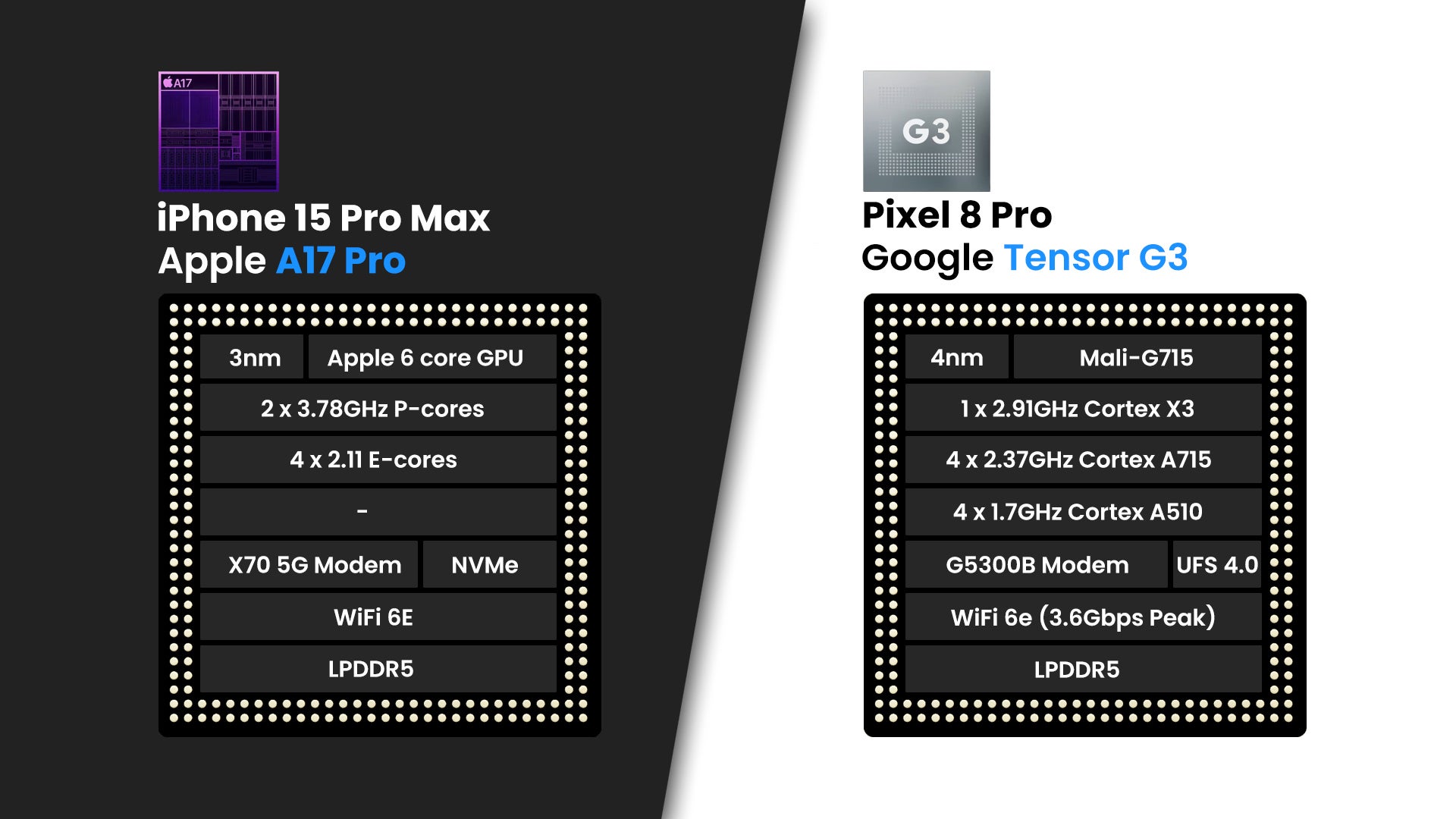
The iPhone 15 Pro Max features the Apple-made A17 Pro chipset, the world's first 3nm mobile chip.
The Pixel 8 Pro, on the other hand, features the new Tensor G3, a chip that is built using a 4nm technology in Samsung foundries.
It appears that the iPhone chip has more raw performance power, loads of that, while the Tensor is quite behind, but Google tries to convince users that it is all about the improved machine learning capabilities of the chip, so there's that.
Well, in our tests, it's really no contest. As far as raw performance goes, the iPhone smokes the Pixel out of the water. However, you might not even feel such a major difference in real life. Sure, the iPhone might be faster, but all of that processing power is wasted with social media apps.
As for the rest, the iPhone 15 Pro Max has 8GB of LPDDR5 type RAM, while the Pixel 8 Pro comes with 12GB of the faster LPDDR5X RAM.
In terms of storage, the iPhone is available with 256, 512GB, or 1TB of storage, while the Pixel 8 Pro has a 128GB, 256GB, 512GB versions, and for the first time, a 1TB version.
In terms of software support, we expect the iPhone 15 Pro Max to be supported for around five years, or late 2028 in the earliest. Meanwhile, the Pixel 8 Pro will receive seven years of software support, all the way until 2030. And this includes major OS upgrades too, so if all goes well you should get Android 21 in the far future!
Apple unveiled the significant iOS 17.1 software update, which brings numerous enhancements, at the end of October 2023. StandBy, the new function that shows information while the phone is charging, has undergone some significant adjustments. The Apple Music user experience has also been improved in a few ways. Later, iOS 17.2 was released with the new Journal app and multiple other improvements.
Camera
Best of both worlds
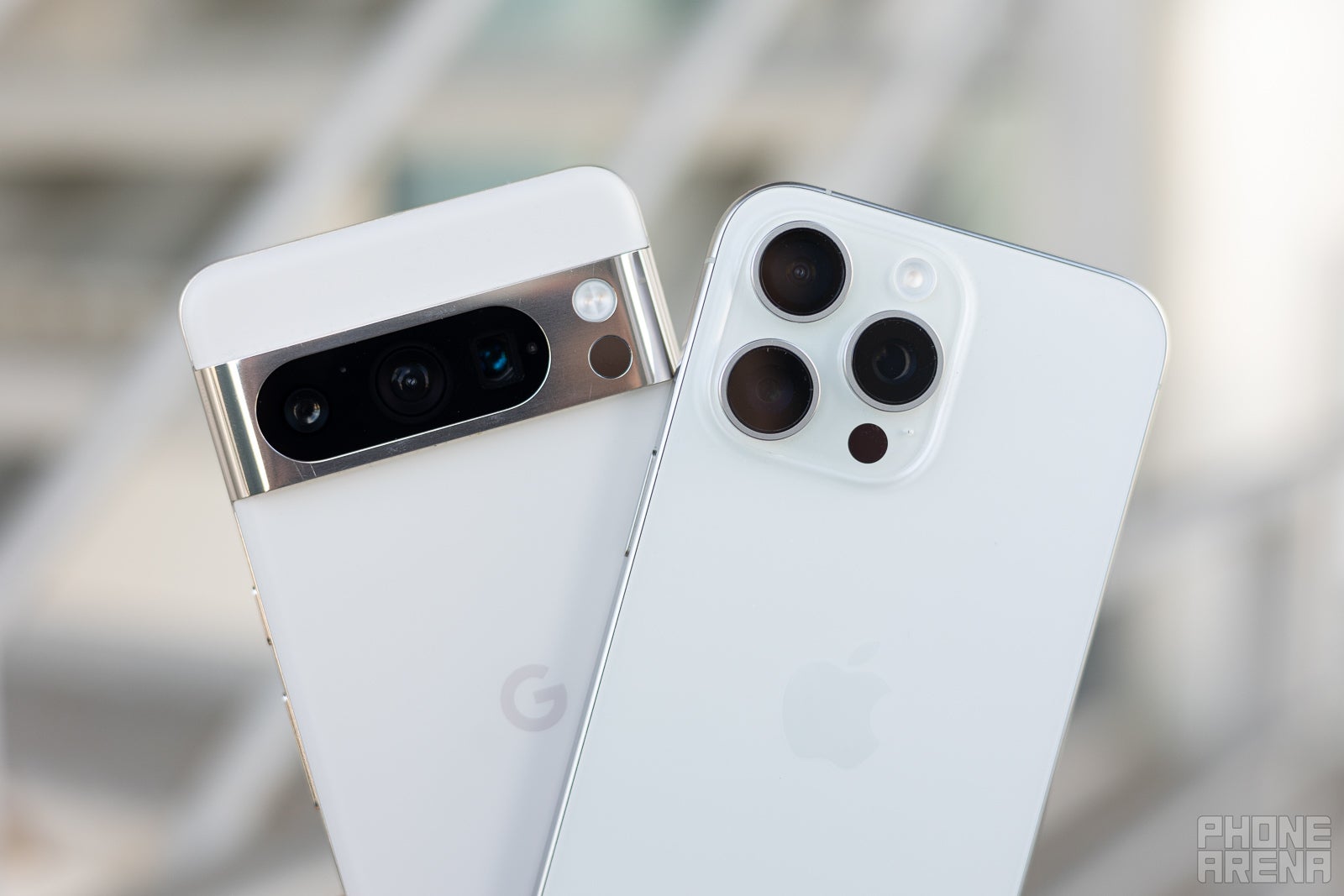
The big novelty with the iPhone 15 Pro Max is the addition of a 5X periscope camera that finally gives it some serious zooming power.
The main camera of the iPhone 15 Pro Max remains mostly unchanged at 48MP, but it gets one very impressive new trick: higher-res 24MP resolution is the new default format! This means a lot more detail in your shots (you can also choose to shoot at 12MP or in the full 48MP size). There are also customizable focal lengths on the main camera, allowing the user to switch between 24mm, 28mm, and 35mm for different compositions.
Meanwhile, the Pixel 8 Pro is a serious performer.
We get upgrades to all the cameras on board. The main shooter has the same 50MP resolution but a faster aperture, and then the ultra-wide camera gets a new 48MP sensor, and similarly the 5X zoom camera also gets a 48MP sensor. And now, finally, you can actually shoot in the full resolution when you use the new Pro mode on the Pixel 8 Pro.
But it's video where Google delivers the most impressive new features, or at least promises that it will deliver… later this year. Both the iPhone and the Pixel shoot video at up to 4K60 resolution, but the Pixel 8 Pro will get a new Video Boost feature coming in December.
But it's video where Google delivers the most impressive new features, or at least promises that it will deliver… later this year. Both the iPhone and the Pixel shoot video at up to 4K60 resolution, but the Pixel 8 Pro will get a new Video Boost feature coming in December.
This groundbreaking feature will send your video to Google's cloud where each frame will go through the HDR+ processing and after a short wait, you will get a video with hugely improved dynamic range OR if you shoot at night, you will get Night Sight Video with enhanced light and clearer dynamic range. In promo materials, this looked really impressive, so we can't wait to test it out.
Main Camera - Daytime Photos
While the iPhone delivers more natural-looking photos, the Pixel does look better in comparison, with better dynamics and livelier colors. The iPhone surely leans on that green-yellow tint, while Google's new flagship is more balanced. Dynamics-wise, the Pixel also has a slight upper hand, with more details captured in the shadowy areas of the scene.
Main Camera - Low-light / Night Photos
At night, the iPhone certainly loses the race when it comes to dynamics. With extreme lighting, burnt highlights and lack of information in the shadows is a common occurrence with Cupertino's hot-new flagship. At the same time, the Pixel delivers a much more balanced dynamic range and slightly nicer colors as well.
Zoom Quality
At 5X, it's hard to highlight a clear winner: both have done an outstanding job here, and it's difficult to pinpoint a winner, or a loser for that matter. At 10X, however, things become more interesting, with the iPhone 15 Pro Max arguably delivering a better zoomed-in shot.
Again, 5X at low light is excellent and very usable on both devices, which is a great thing to see. But what happened at 10X with the iPhone? We can only guess, but it's certain the Pixel wins in this round.
Portrait Mode
Portraits are bad on the Pixel, with lots of separation artifacts, noise, and irregularities that break the immersion. Not to say the iPhone is perfect, it isn't, but it rarely disappoints when it comes to portraits.
Ultra-wide Camera
Overall, both phones have very nice ultra-wide angle cameras, especially when the light is ample. Terrible lens flares have always plagued the iPhone at low-light, and the iPhone 15 Pro Max isn't one to break from tradition, so we have to give advantage to the Pixel during nighttime.
Selfies
If you love contrasty and dramatic selfies, please get yourself a Pixel! Google's new flagship delivers great colors and overall style for the selfies. On the other hand, the brutal and mundane reality is easily captured by the iPhone 15 Pro Max, so if you prefer more unprocessed realism, the iPhone might strike your fancy.
Video quality

Well, if not decidedly better, the Pixel is at least equal to the iPhone in terms of video quality. iPhones are usually crowned video kings––and for a good reason, iPhone video is excellent––but in the case of the Pixel 8 Pro versus the iPhone 15 Pro Max, things aren't that one-sided. With very nice colors and good dynamics, the Pixel 8 Pro surely surprises pleasantly. At the same time, the iPhone wins over with better stabilization and a bit more realistic dynamic range and colors.
Audio Quality and Haptics
Both the iPhone 15 Pro Max and the Pixel 8 Pro use dual-speaker stereo systems, each with one bottom-firing and one embedded into the earpiece. The iPhone 15 Pro Max has the upper hand here, with punchier and more enjoyable sound.
The same applies to the haptic feedback, which is traditionally quite precise and strong on either phone, so excuse us if we have very high expectations about the iPhone 15 Pro Max and the Pixel 8 Pro.
Battery Life and Charging
Is the era of super long-lasting phones upon us?
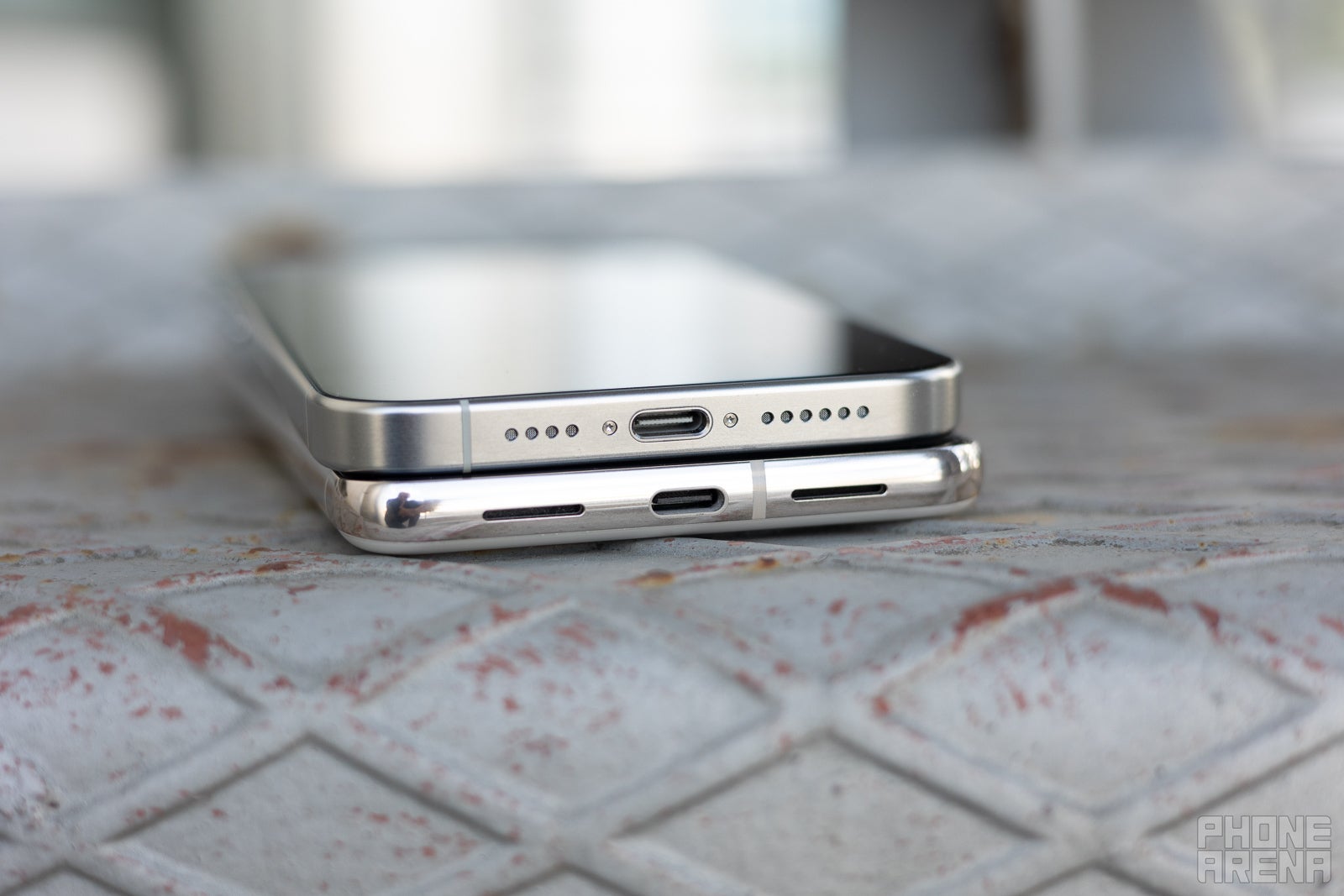
The iPhone 15 Pro Max comes with a 4,422mAh battery, while the Pixel 8 Pro has a 5,050mAh cell.
This, however, alone is not a good indication of actual battery life, and we have seen that the iPhone typically outlasts the Pixels by a good margin, just to set expectations. Of course, we will be testing these two phones in detail next week, so come back to see the battery life numbers and a lot more insight on this.
In our tests, which are conducted with the displays manually set at 200 nits, the iPhone has the upper hand in our custom web browsing test, but loses in the video streaming exercise. If you aren't heavily invested in video streaming, then the iPhone would likely last longer with you, and vice versa.
Charging-wise, the iPhone 15 Pro Max supports 25W wired charging and 15W MagSafe wireless charging. The Pixel 8 Pro beats it: it has 30W wired charging and 23W wireless charging (but only with a Pixel Stand wireless charger).
PhoneArena Charging Test
Specs Comparison
And here are the complete iPhone 15 Pro Max vs Pixel 8 Pro specs, and a summary right below:
| iPhone 15 Pro Max | Google Pixel 8 Pro | |
|---|---|---|
| Screen | 6.7" OLED 120Hz ProMotion 2,000 nits | 6.7" OLED 1-120Hz 2,400 nits |
| Processor | A17 Pro 3nm | Google Tensor G3 4nm |
| RAM, Storage | 8/256GB 8/512GB 8/1TB LPDDR5 | 12/128GB 12/256GB 12/512GB 12/1TB LPDDR5X |
| Cameras | 48MP main 12MP ultra 12MP 6X zoom 12MP front | 50MP main 48MP ultra-wide 48MP 5X telephoto 10.8MP front |
| Battery | 4,422mAh | 5050 mAh |
| Charging | USB-C 25W wired 15W MagSafe | USB-C 30W wired 23W wireless |
Summary and Final Verdict

The iPhone 15 Pro Max and the Pixel 8 Pro make the second half of 2023 very, very interesting.
The Pixel 8 Pro seems like a very solid upgrade with particularly big camera upgrades, brighter screen, faster charging speeds, but also a slightly higher $1,000 starting price.
The iPhone 15 Pro Max, on the other hand, still has the battery life advantage, a more modern design, Face ID, and a zoom camera to match, but it costs more starting at $1,200.
We will have a camera comparison, performance benchmarks, display analysis and battery life numbers next week for the final verdict, so check back then, but for now, this seems like a very heated battle.
Which one would you rather get?
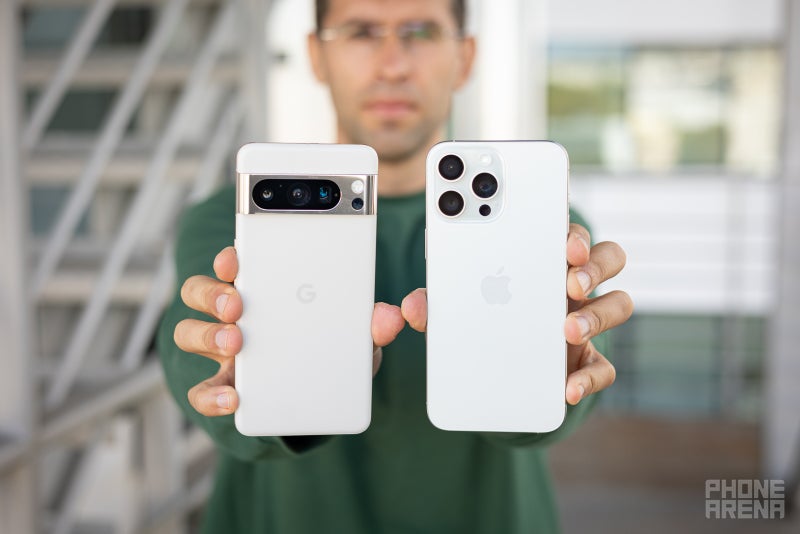
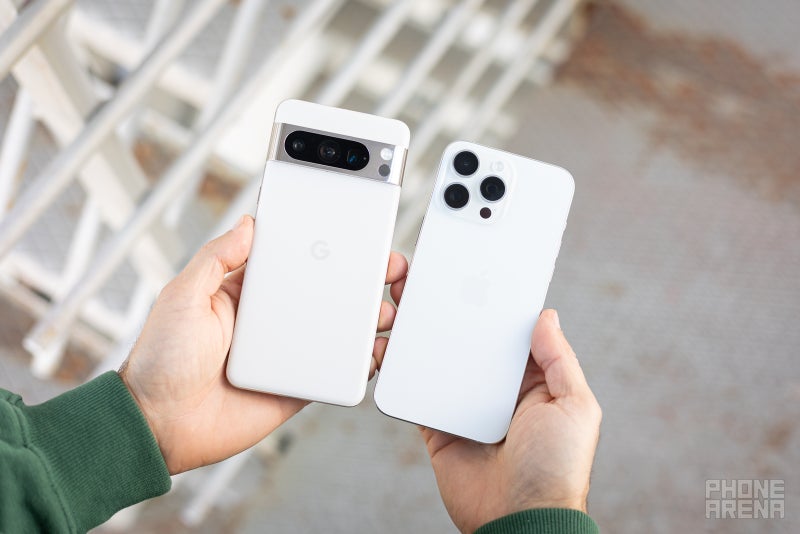
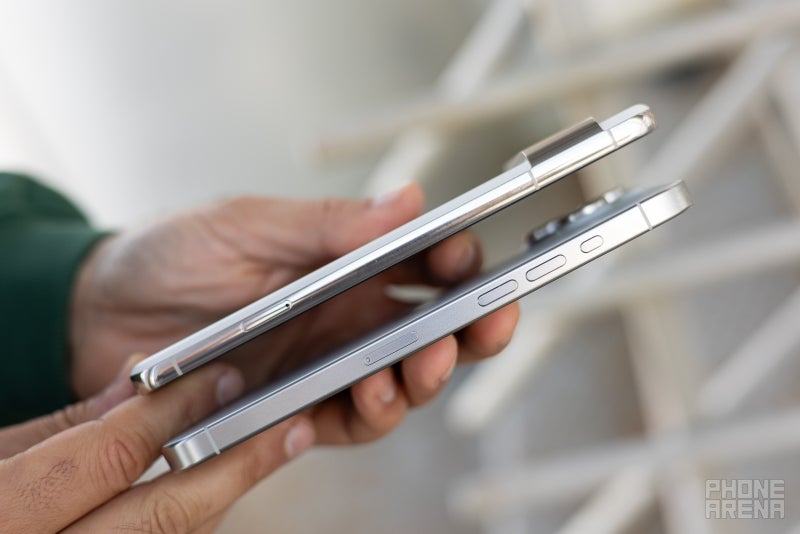
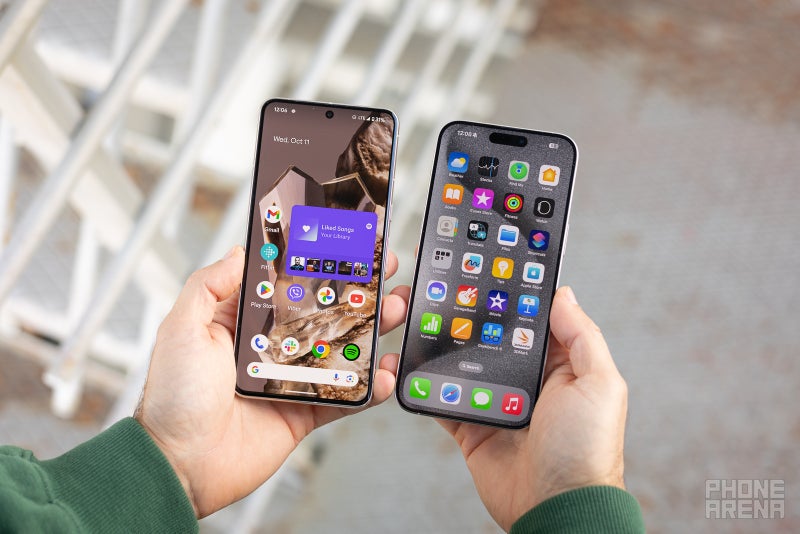
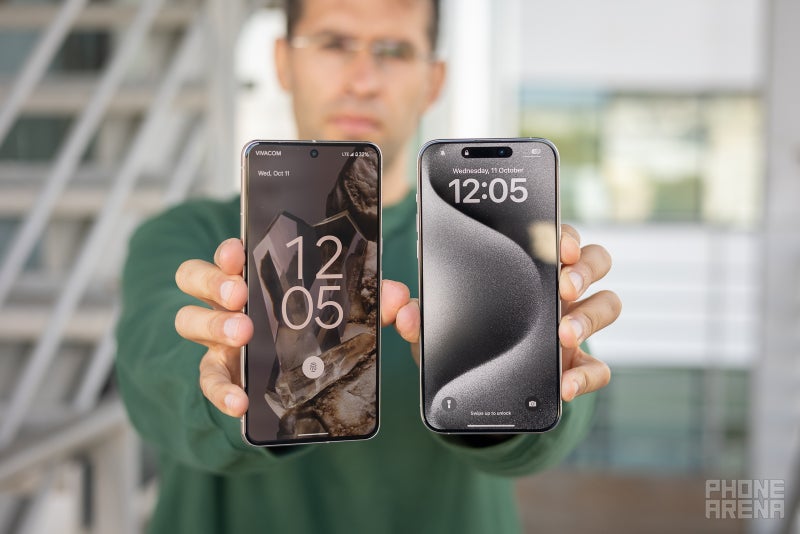
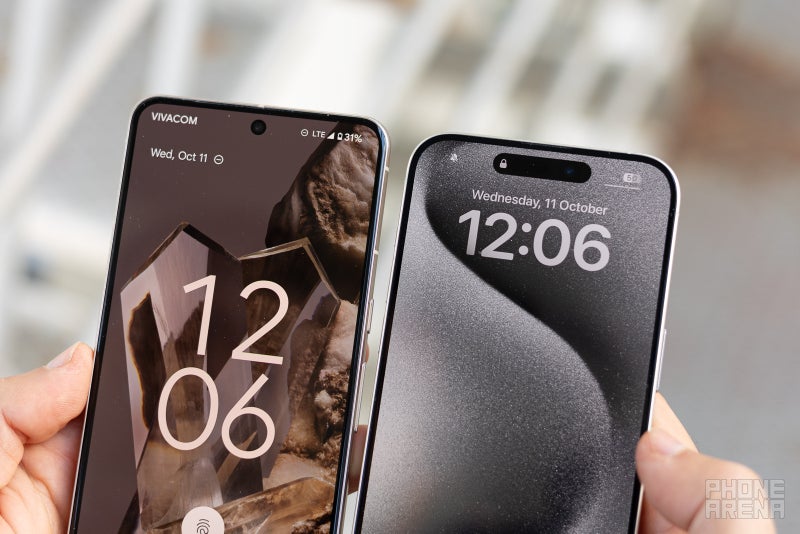
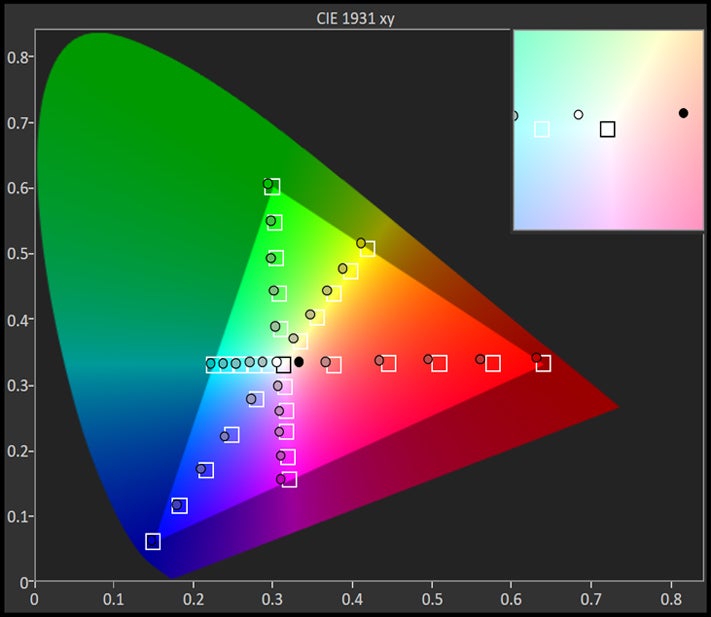












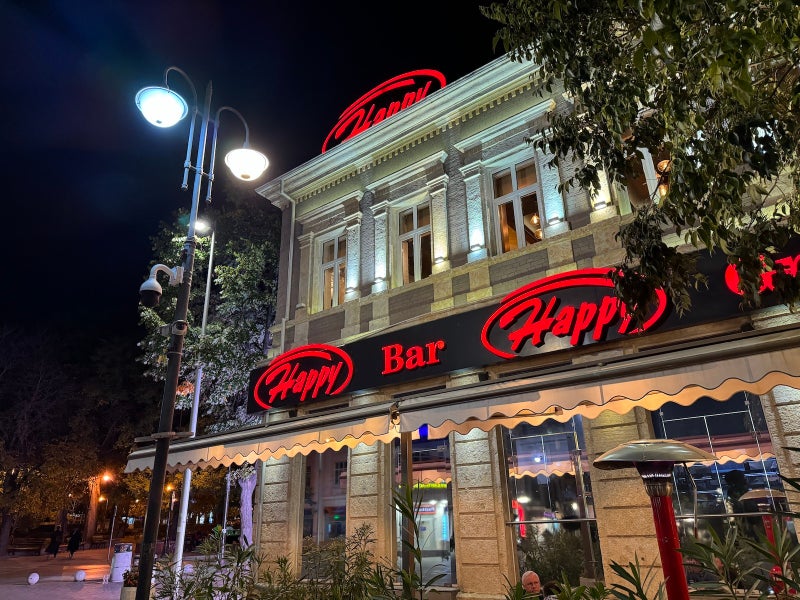
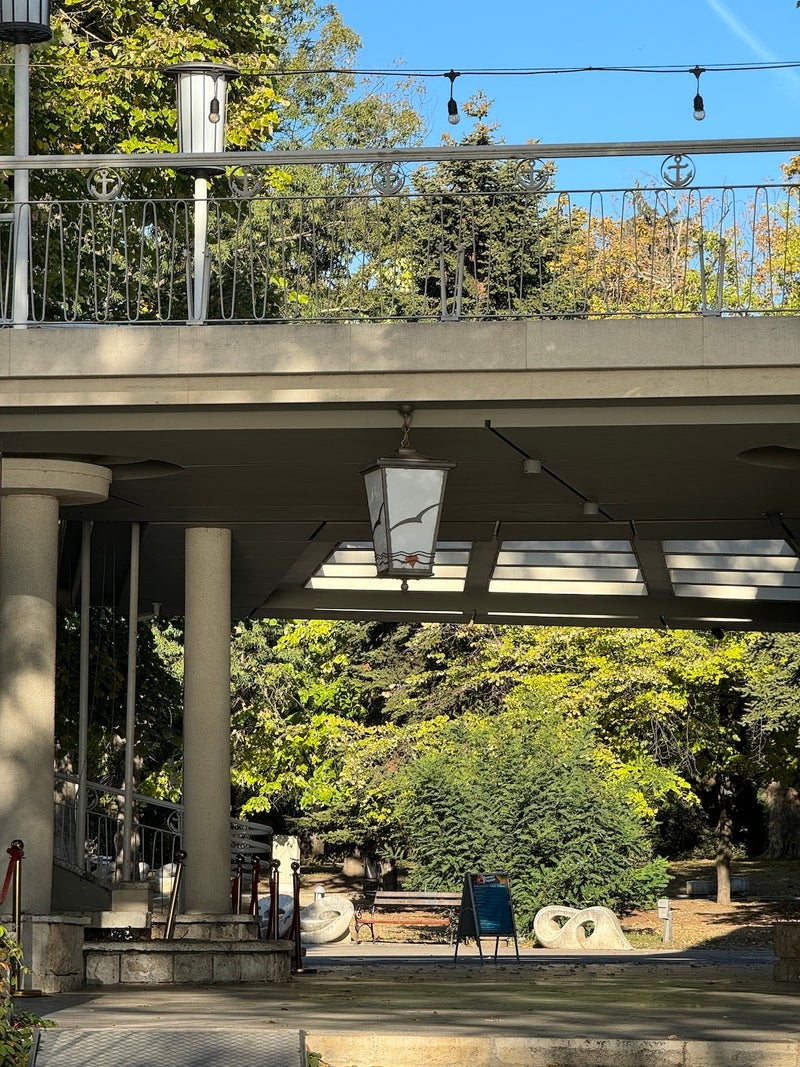
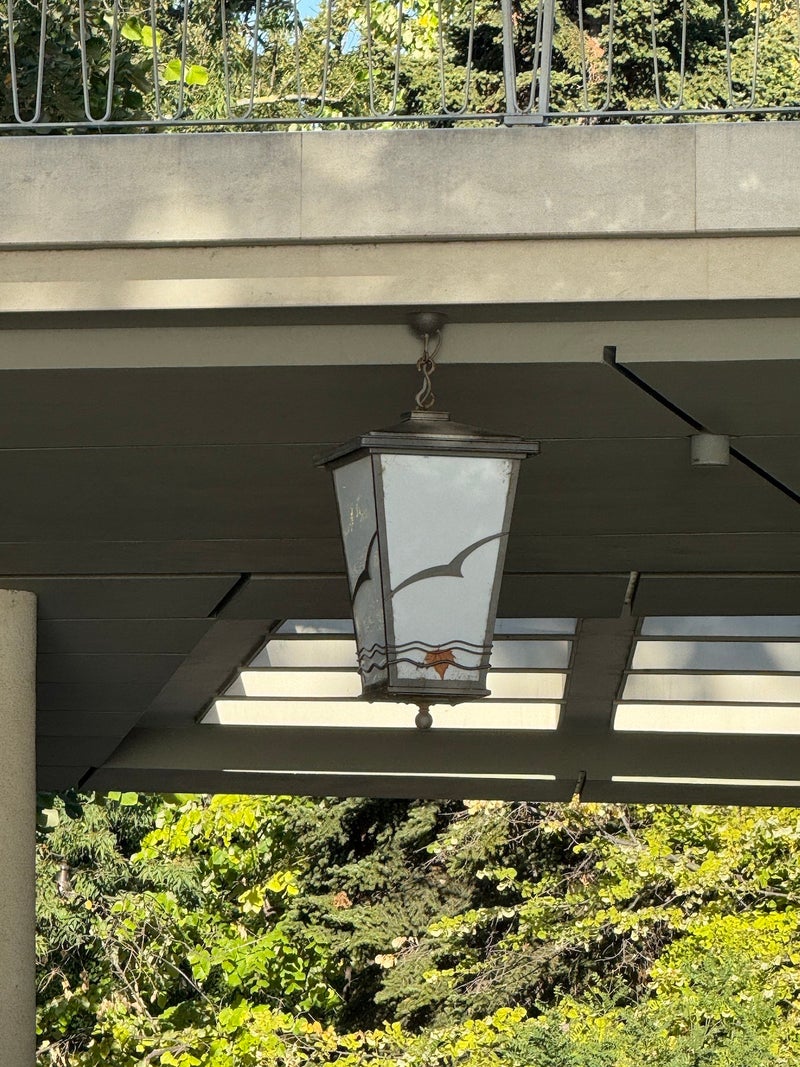
















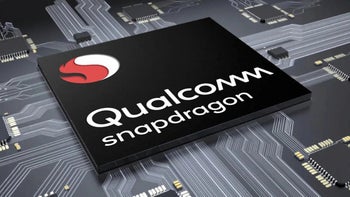

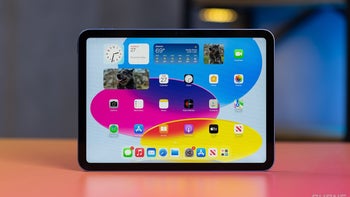
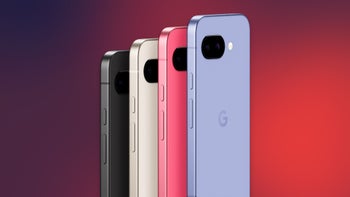
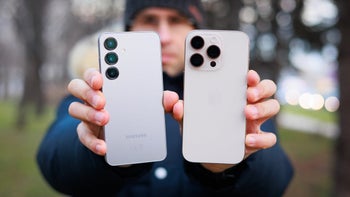
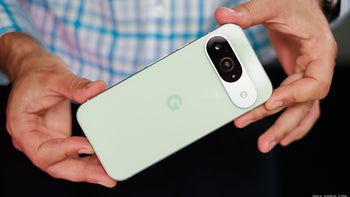






Things that are NOT allowed: